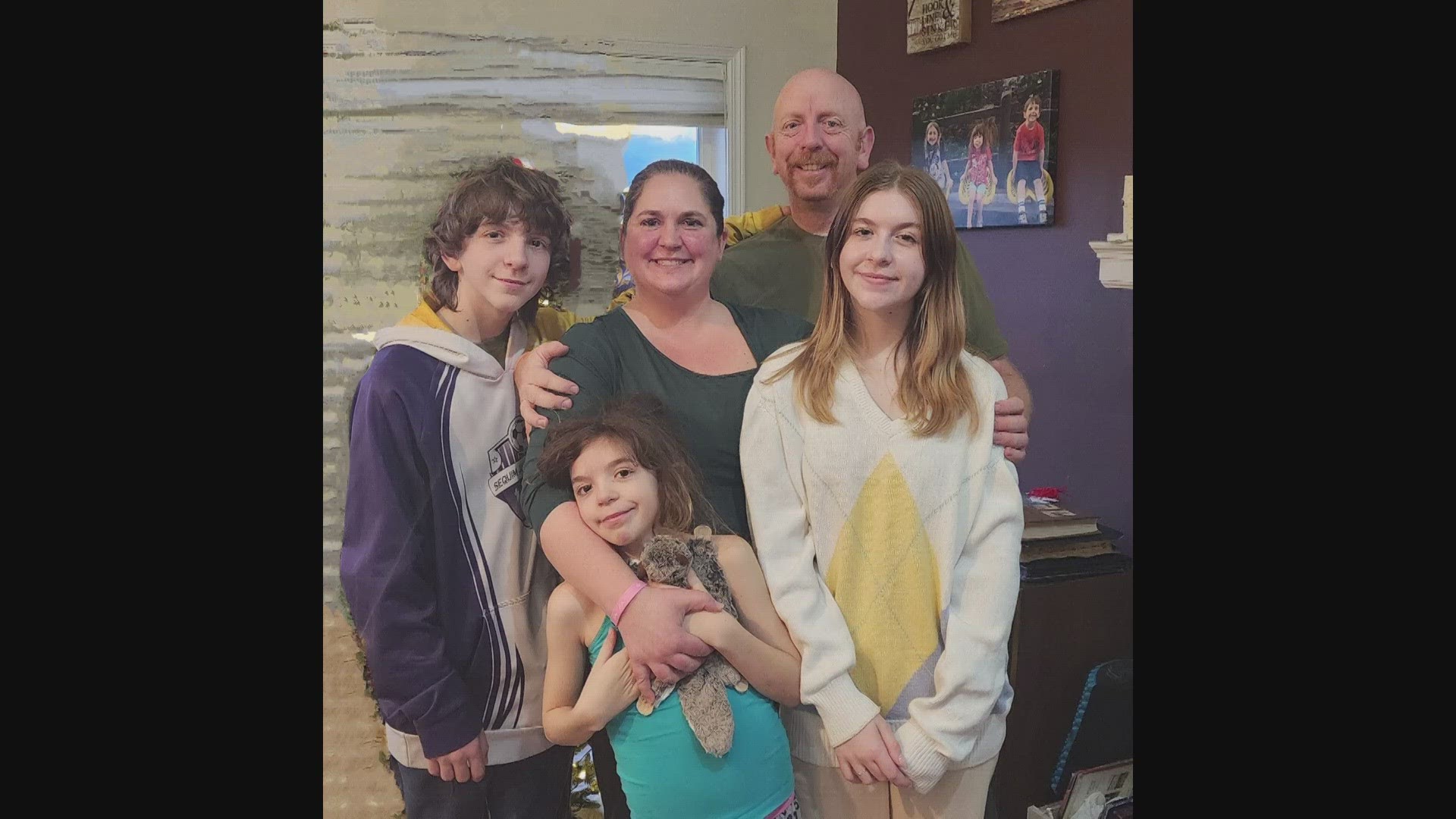SEATTLE — Multiple sclerosis is a debilitating disease that nearly one million people in the U.S. live with, according to the National Multiple Sclerosis Society.
MS, as it's often called, is particularly common among women. Symptoms usually emerge in a patient's 30s and 40s.
Elizabeth Lawson of Sequim is a University of Washington graduate, a wife, a mother of three children, and librarian, her dream career. She is also battling multiple sclerosis.
"Getting out of bed can seem like Mt. Everest sometimes," Lawson said.
Lawson sat down with KING 5 to talk about her condition in hopes of raising awareness of the disease. She said she will never forget the day she felt symptoms.
"I was in my position as a librarian and my whole side of my face and my eye started to hurt and go a little blind," Lawson said.
That was 2011, the year everything changed for her and her family. When Lawson noticed she had a blind spot in her left eye, she went to a specialist.
"The neurological ophthalmologist called me and said, well we got your MRI and it looks like you have MS. And I can treat you out of my office. And I went, okay. I can't talk to you right now," Lawson said.
That was her reaction to the devastating news because of what multiple sclerosis entails.
MS is an autoimmune disease where the immune system attacks the body's central nervous system. The reasons are not fully understood.
Symptoms vary widely but can include vision problems, muscle weakness, numbness in the limbs, high fatigue, and difficulty thinking.
"I had to go through some therapy to just figure out how to deal with my life being different because it was. I have to be a different mom than I ever thought I was going to be," Lawson said.
Her physician, Dr. Annette Wundes, said MS is a complex interaction of genetic and environmental markers.
Wunde added, that more than 20 medications have been identified to treat MS, although there remains no cure.
"There's a lot of things we can do for them. There's been enormous progress that's been made to help people who have MS," Wundes said.
Lawson has been on medication since 2013 to stabilize her disease. Her symptoms have ranged from vision issues, and pain in her arm and leg. She recently started new infusion treatment at UW Medicine's Multiple Sclerosis Center under Wundes' care.
"She's getting an infusion therapy; she seems to be doing much better now," Wundes said.
Lawson said she has learned to endure the disease through the support of her family and through the MS community. She speaks openly about her condition to raise awareness and research funds through MS bike rides and walks.
She wants other MS patients to know they are not alone and to not be afraid to ask for help.
"Then I would make sure you are plugged into some kind of community," Lawson said.
Living with multiple sclerosis: HealthLink
A Sequim mother and wife speaks about her condition to raise awareness

